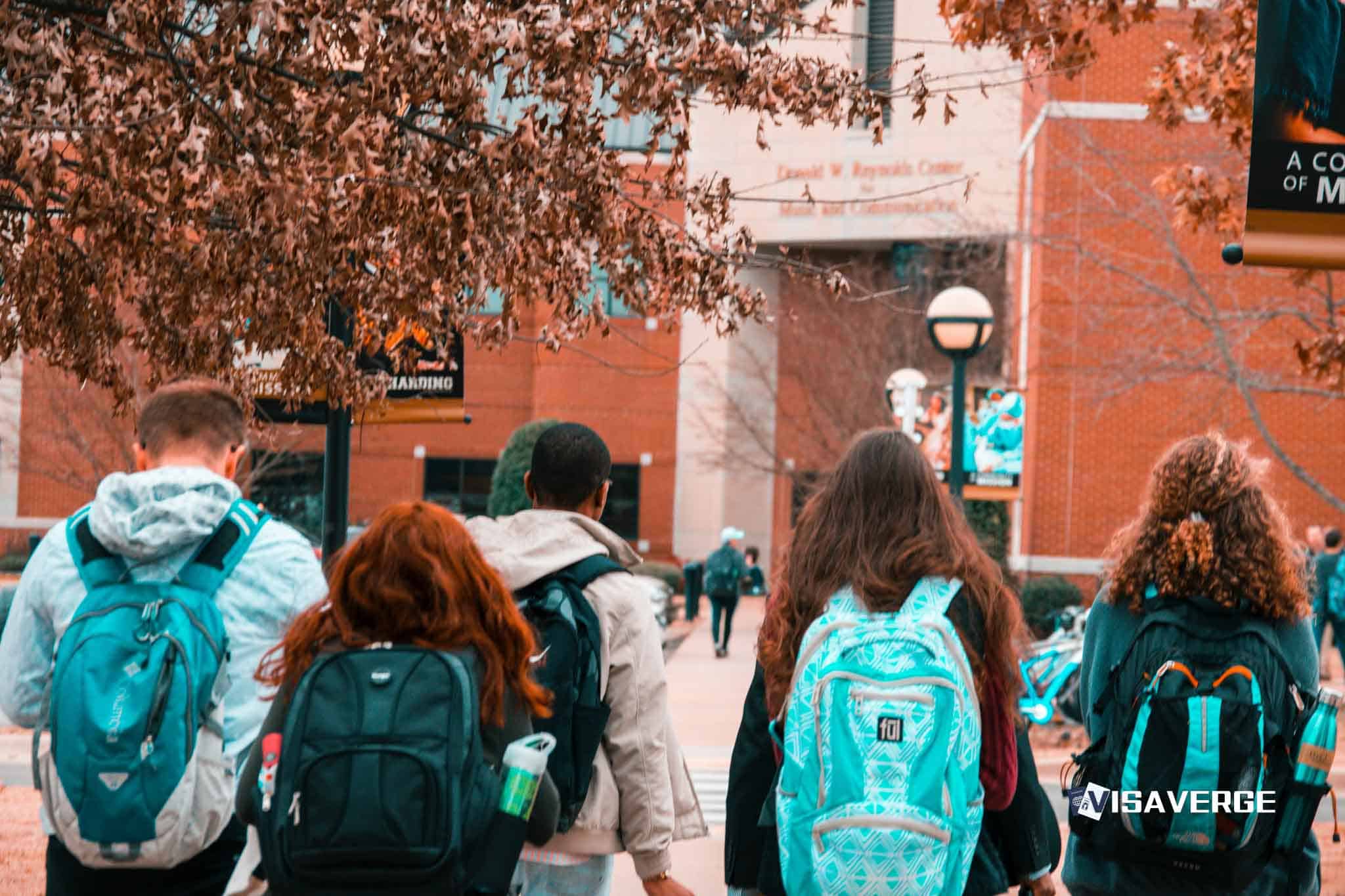Understanding Probationary Status and Its Impact on F1 Visa Students
When an academic institution in the United States is placed on probationary status, it can raise concerns and questions among the international student community, particularly for those holding an F1 Visa. The probationary status of a university can have significant implications for current and prospective F1 Visa students.
What is University Probationary Status?
University probationary status indicates that an institution has not met certain standards set by an accrediting body. During this period, the school is given time to address and correct these deficiencies to ensure the quality of its education and services meet the required standards. It is different from academic probation, which pertains to students’ academic performance.
How Probationary Status Affects F1 Visa Students
For F1 Visa students, being at a university on probation may affect their immigration status and their plans for studying in the United States. Here are the key ways:
- SEVP Certification: To host F1 Visa students, institutions must be certified by the Student and Exchange Visitor Program (SEVP). Probation can threaten this certification, potentially impacting students’ ability to obtain or retain their F1 status.
- Transfers and Enrollment: Students might consider transferring to another institution to safeguard their visa status. However, this can be a complex process requiring careful coordination to ensure continuous immigration status.
- Post-graduate Opportunities: Employers or other educational institutions may view a degree from a probationary-status university as less credible, affecting job and further academic prospects.
- Access to Work Authorization: Practical training opportunities like Optional Practical Training (OPT) and Curricular Practical Training (CPT), which are essential benefits of the F1 Visa, may be scrutinized or complicated by a university’s probationary status.
Steps F1 Visa Students Should Take
If you are an F1 Visa student at a university that is on probation, consider the following actions:
- Stay Informed: Regularly check for updates from your university’s international student office. They will provide accurate and timely information about the probationary status and its resolution.
- Seek Guidance: Consult with a Designated School Official (DSO) regarding your options, including the possibility of transferring or the impact on work authorization.
- Understand Your Rights: Familiarize yourself with the regulations pertaining to your status by visiting the U.S. Immigration and Customs Enforcement’s SEVP page.
Planning for the Future
The probationary status of a university may not be a situation that F1 Visa students can control, but it is crucial to make informed decisions to maintain their immigration status. Remaining proactive and seeking advice from knowledgeable sources can help mitigate potential negative impacts.
As an international student, your primary goal is to keep your status secure while pursuing your educational ambitions. Ensure you are aware of all necessary compliance requirements and have contingency plans in place.
Having a full grasp of the repercussions of a university’s probationary status can greatly alleviate the stress or confusion that comes with such unexpected circumstances. By staying informed and prepared, F1 Visa students can navigate the challenges and protect their educational journey in the United States.
So there you have it, folks! Understanding probationary status and its impact on F1 Visa students can be a real pickle. But fear not! Arm yourself with knowledge, stay informed, and seek guidance to navigate these choppy waters. And remember, for more in-depth information and handy tips, head on over to visaverge.com. Trust me, you won’t want to miss it! Happy visa venturing, my friends!
FAQ’s to know:
FAQ 1: What is the impact of probationary status on F1 Visa students?
Answer: The probationary status of a university can have significant implications for F1 Visa students. It can potentially impact their immigration status, transfers, post-graduate opportunities, and access to work authorization. Students should stay informed, seek guidance from Designated School Officials (DSOs), and understand their rights to mitigate negative consequences.
FAQ 2: How does probationary status affect F1 Visa students’ immigration status?
Answer: Probationary status of a university can jeopardize the certification of the Student and Exchange Visitor Program (SEVP), which is essential for hosting F1 Visa students. This can impact F1 Visa students’ ability to obtain or retain their F1 status. Students may need to consider transferring to another institution to safeguard their immigration status.
FAQ 3: How can F1 Visa students handle the impact of probationary status on their academic and professional plans?
Answer: F1 Visa students at a university on probation should take certain steps. They should stay informed about updates from their university’s international student office, consult with a Designated School Official (DSO) to explore options like transferring, and familiarize themselves with the regulations pertaining to their F1 status. Being proactive and seeking guidance can help mitigate the impact of probationary status on academic and professional plans.
What did you learn? Answer below to know:
- True or False: When a university is placed on probationary status, it may have implications for F1 Visa students’ immigration status and educational opportunities.
- What is the potential impact of a university’s probationary status on F1 Visa students’ post-graduate opportunities?
a) It may affect their ability to transfer to another institution
b) It may make their degree from a probationary-status university less credible
c) It may complicate their access to work authorization benefits
d) All of the above - What actions should an F1 Visa student take if their university is on probationary status?
a) Regularly check for updates from the international student office
b) Consult with a Designated School Official (DSO)
c) Familiarize themselves with regulations on the SEVP page
d) All of the above














